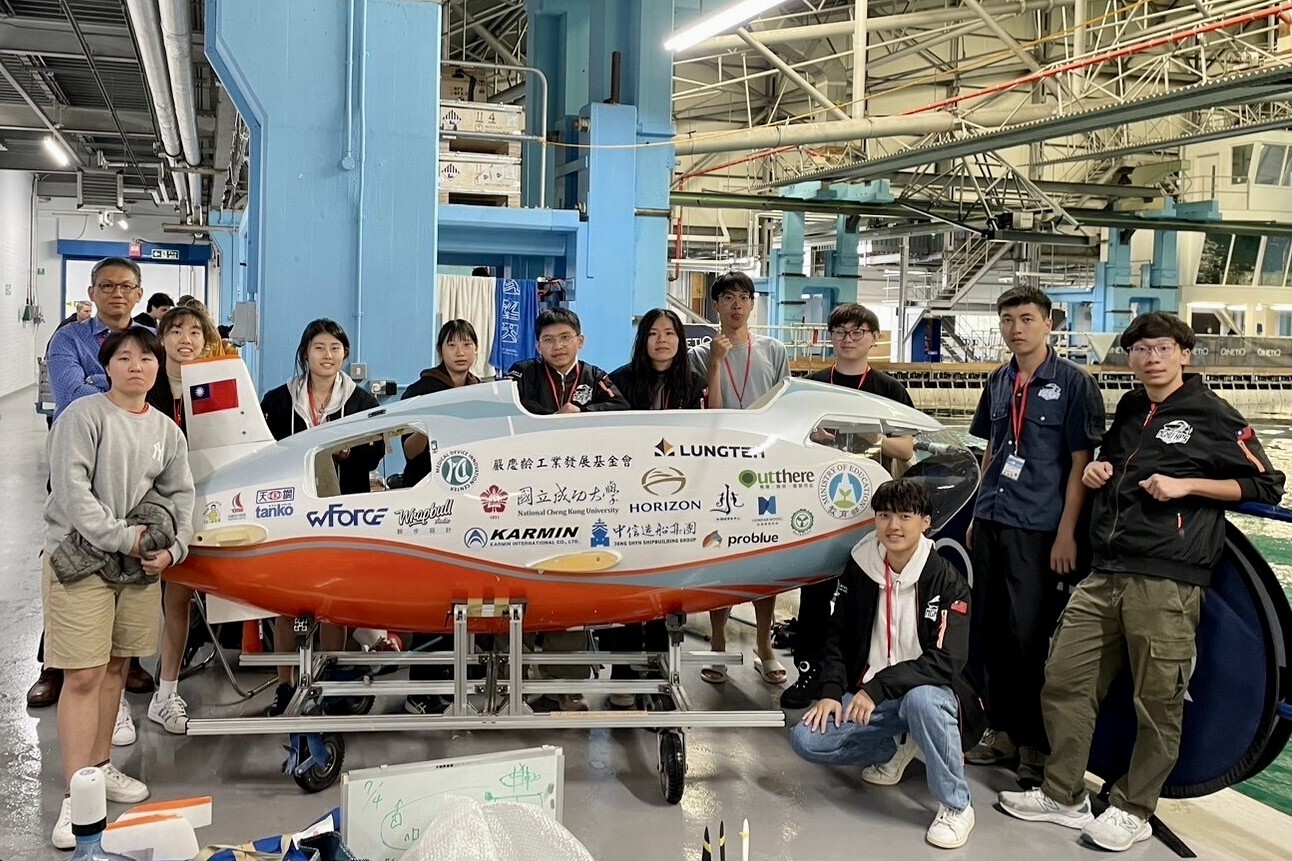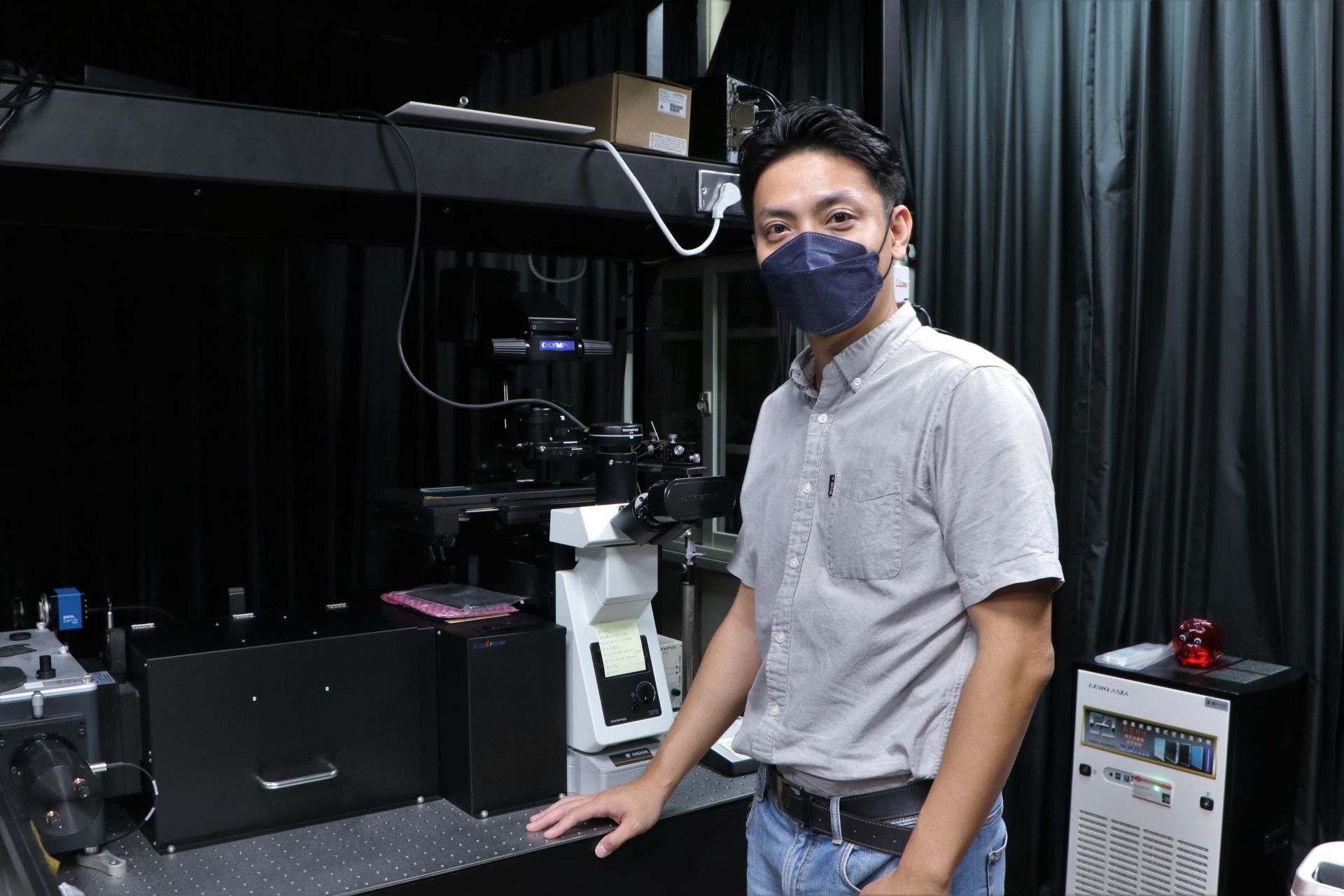SDG9
Intelligence PSG Scoring Training Workshop Draws Over 100 Participants for the Fourth Consecutive Year
Quality sleep is highly valued and actively pursued by modern people. With changing social lifestyles, busy work schedules, and high levels of stress, modern individuals are prone to emotional issues and insomnia. As a result, sleep centers across Taiwan are under significant pressure to meet the increasing demand for sleep treatment. To address the clinical needs in sleep medicine, the Taiwan Society of Sleep Medicine, in collaboration with domestic academic and research institutions dedicated to sleep studies, and the Sleep Medicine Center of National Cheng Kung University (NCKU) Hospital, along with the Department of Computer Science and Information Engineering at NCKU, jointly developed an intelligent sleep interpretation system. For the fourth consecutive year, they have organized a workshop that combines both online and in-person sessions to encourage broader participation from sleep technicians across Taiwan. This workshop provides a high-quality training platform for sleep specialists and technicians and continuously enhances the intelligent interpretation system, aiming to facilitate smoother clinical sleep treatment. Each year, the workshop attracts nearly 100 participants, both online and in-person, receiving excellent reviews from the academic community!
In June this year, the workshop was hosted by the Taiwan Society of Sleep Medicine, the Sleep Medicine Center of NCKU Hospital, the Department of Otolaryngology at NCKU Hospital, the Department of Computer Science and Information Engineering at NCKU, the Digital Biomedical Technology Innovation Research Center of NCKU, and the Center for Security, Health and Sustainable Development. Together, they made significant efforts to advance sleep medicine.
The event commenced with an opening address by Kun-Ta Chou, President of the Taiwan Society of Sleep Medicine, followed by practical training sessions conducted by several sleep experts. Sheng-Yi Liu, a senior member of the Taiwan Society of Sleep Medicine, leveraged his extensive clinical experience to deliver a comprehensive overview titled "General Overview of Smart Cloud Sleep Interpretation Training." Liao Xin-Min, a pulmonologist at NCKU Hospital, gave a lecture on "Key Considerations in Mixed Sleep Apnea from a Physician's Perspective." Additionally, Yu-Jie Lin, a sleep technician from the Sleep Medicine Center of Taichung Tzu Chi Hospital, delivered an engaging final presentation on "Key Points and Case Studies in the Interpretation of Sleep-Related Respiratory Events." The final activity of the day was a comprehensive discussion and experience-sharing session on the results of the online interpretation system. This session was chaired by Cheng-Yu Lin, Director of the Sleep Medicine Center at NCKU Hospital; Sheng-Fu Liang, Professor at the Department of Computer Science and Information Engineering at NCKU; and Sheng-Yi Liu, a senior member of the Taiwan Society of Sleep Medicine. Other participants included Chun-Sen Huang and Jun-Xian Zeng, senior members of the Taiwan Society of Sleep Medicine, and Wen-Gui Lin, a technician from the Sleep Medicine Center at NCKU Hospital, who all contributed their extensive clinical experience to enrich the workshop discussions.
Each year, different professional sleep medicine centers take turns developing the workshop topics, which are revised annually. This year's topics focused specifically on severe sleep apnea, with an emphasis on enhancing the functionality of the intelligent sleep interpretation system. The aim was to increase the complexity of the topics and the capabilities of the interpretation system, providing workshop participants with more diverse and solid training. Statistics from the workshop's interpretation results show that training with the intelligent sleep interpretation system significantly improves the accuracy of sleep technicians in interpreting sleep-related respiratory events and EEG arousals. The intelligent interpretation system provides excellent support to technicians in their interpretations.
In June this year, the workshop was hosted by the Taiwan Society of Sleep Medicine, the Sleep Medicine Center of NCKU Hospital, the Department of Otolaryngology at NCKU Hospital, the Department of Computer Science and Information Engineering at NCKU, the Digital Biomedical Technology Innovation Research Center of NCKU, and the Center for Security, Health and Sustainable Development. Together, they made significant efforts to advance sleep medicine.
The event commenced with an opening address by Kun-Ta Chou, President of the Taiwan Society of Sleep Medicine, followed by practical training sessions conducted by several sleep experts. Sheng-Yi Liu, a senior member of the Taiwan Society of Sleep Medicine, leveraged his extensive clinical experience to deliver a comprehensive overview titled "General Overview of Smart Cloud Sleep Interpretation Training." Liao Xin-Min, a pulmonologist at NCKU Hospital, gave a lecture on "Key Considerations in Mixed Sleep Apnea from a Physician's Perspective." Additionally, Yu-Jie Lin, a sleep technician from the Sleep Medicine Center of Taichung Tzu Chi Hospital, delivered an engaging final presentation on "Key Points and Case Studies in the Interpretation of Sleep-Related Respiratory Events." The final activity of the day was a comprehensive discussion and experience-sharing session on the results of the online interpretation system. This session was chaired by Cheng-Yu Lin, Director of the Sleep Medicine Center at NCKU Hospital; Sheng-Fu Liang, Professor at the Department of Computer Science and Information Engineering at NCKU; and Sheng-Yi Liu, a senior member of the Taiwan Society of Sleep Medicine. Other participants included Chun-Sen Huang and Jun-Xian Zeng, senior members of the Taiwan Society of Sleep Medicine, and Wen-Gui Lin, a technician from the Sleep Medicine Center at NCKU Hospital, who all contributed their extensive clinical experience to enrich the workshop discussions.
Each year, different professional sleep medicine centers take turns developing the workshop topics, which are revised annually. This year's topics focused specifically on severe sleep apnea, with an emphasis on enhancing the functionality of the intelligent sleep interpretation system. The aim was to increase the complexity of the topics and the capabilities of the interpretation system, providing workshop participants with more diverse and solid training. Statistics from the workshop's interpretation results show that training with the intelligent sleep interpretation system significantly improves the accuracy of sleep technicians in interpreting sleep-related respiratory events and EEG arousals. The intelligent interpretation system provides excellent support to technicians in their interpretations.
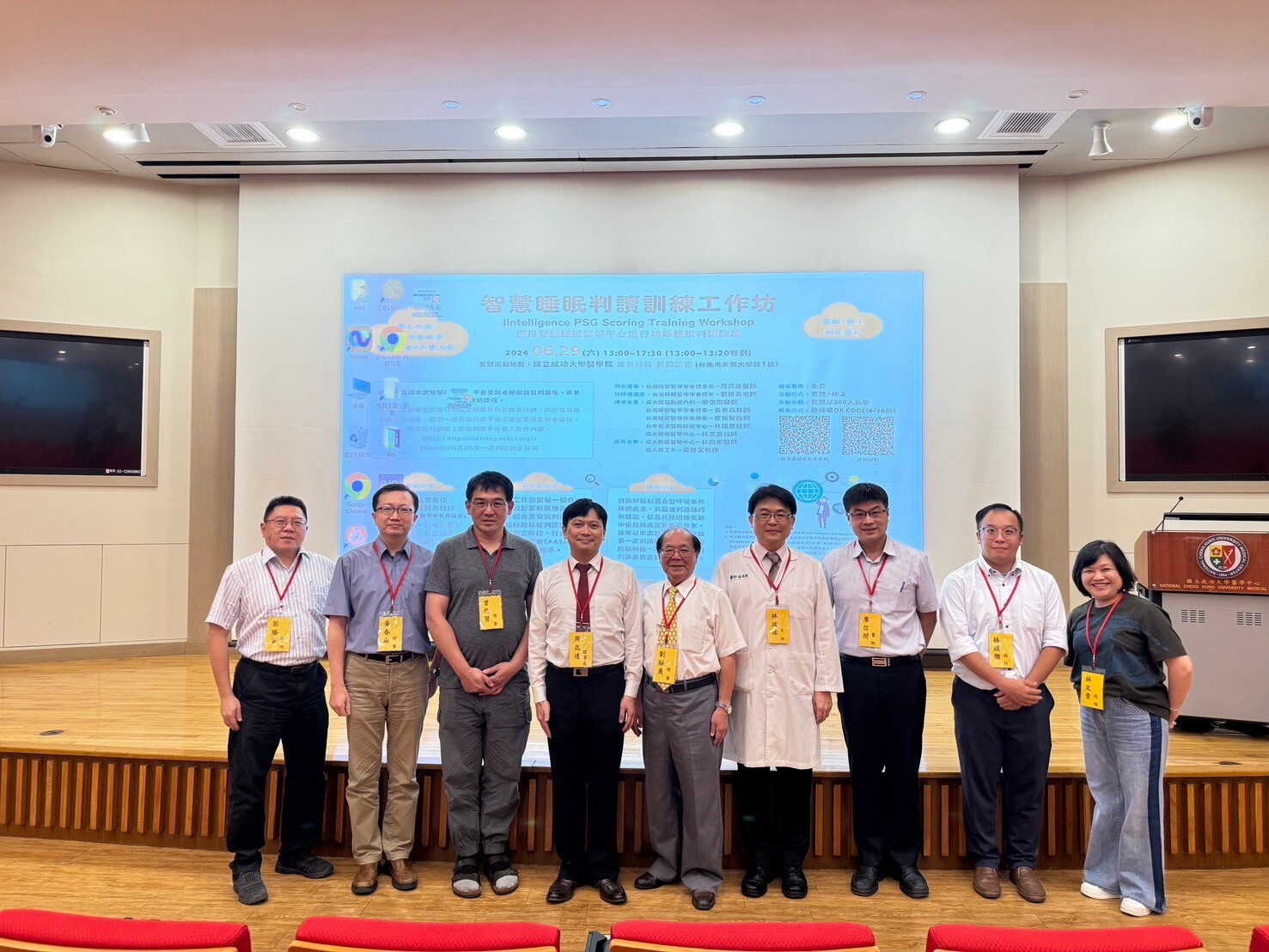
The Intelligence PSG Scoring Training Workshop has been held for the fourth consecutive year, with over 100 participants.
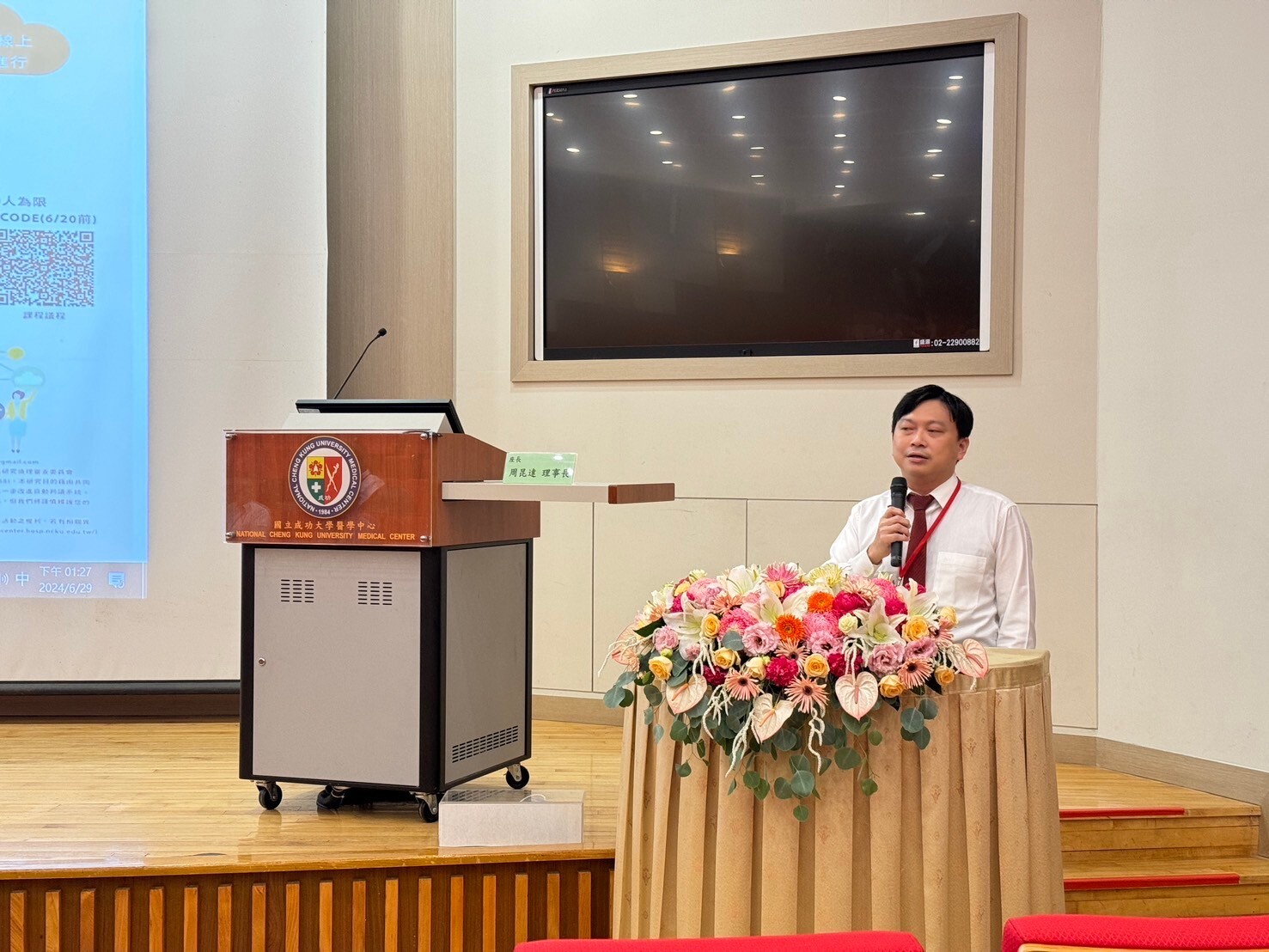
Kun-Ta Chou, President of the Taiwan Society of Sleep Medicine, gave an inspiring opening address for the event.
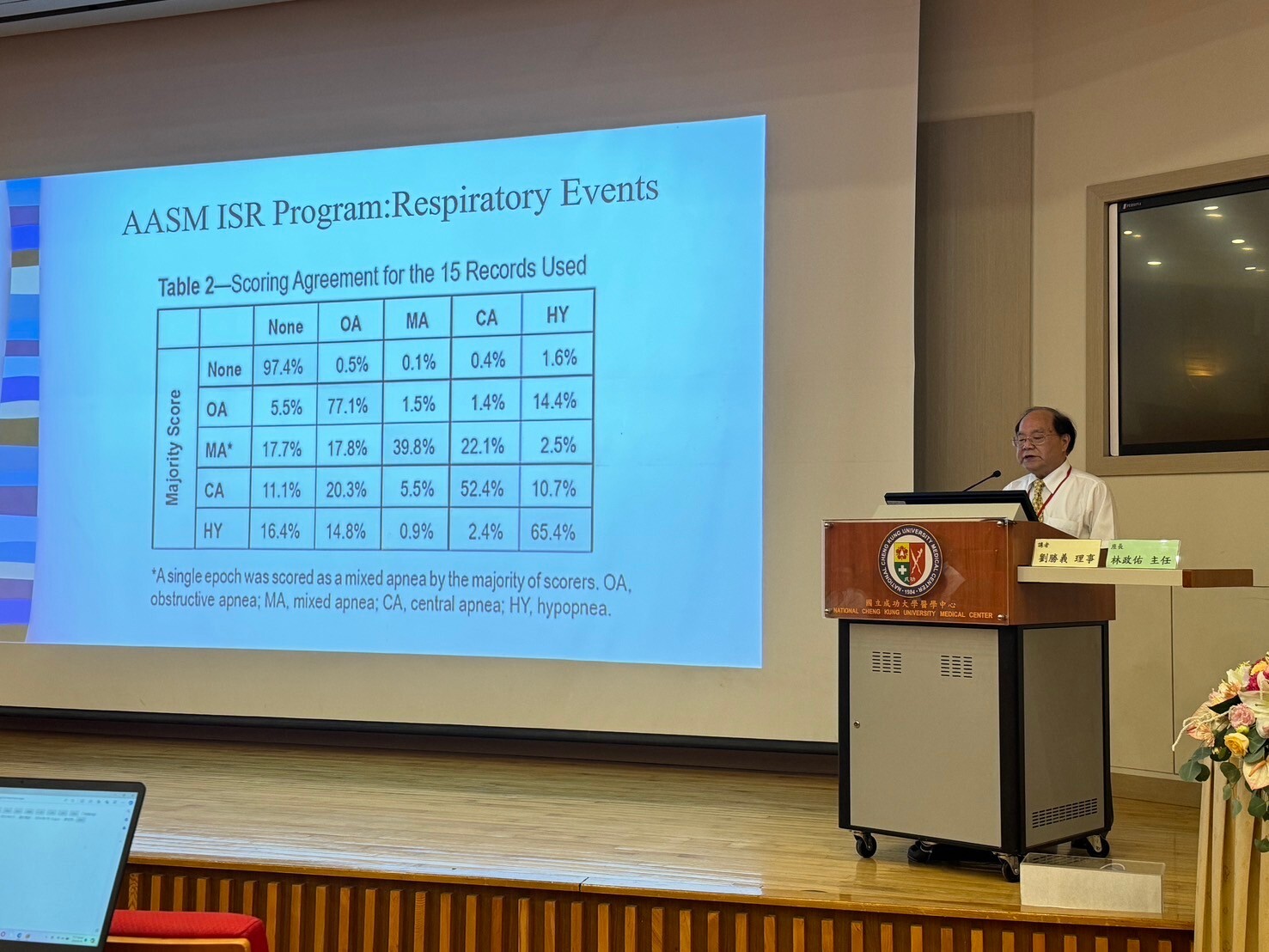
Sheng-Yi Liu, a senior member of the Taiwan Society of Sleep Medicine, shared a comprehensive overview titled "General Overview of Smart Cloud Sleep Interpretation Training," drawing on his extensive clinical experience.





